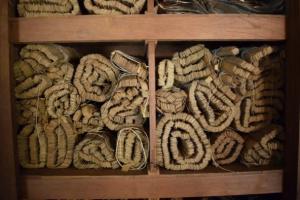
Arcadia serves humanity by preserving endangered cultural heritage and ecosystems.
We protect complexity and work against the entropy of ravaged and thereby starkly simplified natural environments and globalized cultures. Innovation and change occur best in already complex systems. Once memories, knowledge, skills, variety, and intricacy disappear – once the old complexities are lost – they are hard to replicate or replace. Arcadia aims to return to people both their memories and their natural surroundings. What we want to preserve remains fragile, small and dispersed. But if we do not protect it – if it vanishes forever – then future generations will have no base from which to build a vibrant, resilient, green future.
Because knowledge should belong to all, we also promote open access, seeking to make information available without barriers of cost or distance. Charities, businesses, universities, schools, the media, politicians, and citizens all benefit when research and data are no longer locked behind paywalls or reserved for those who live near their repositories. The economy benefits too from better-informed decisions, improved schooling and knowledgeable citizens, from enhanced academic research and innovation based on shared knowledge.
We do not accept applications, but seek and support organizations run by exceptional individuals, operating in a cost-effective, scientifically sound, and ethical manner that share our vision.
Lisbet Rausing and Peter Baldwin








